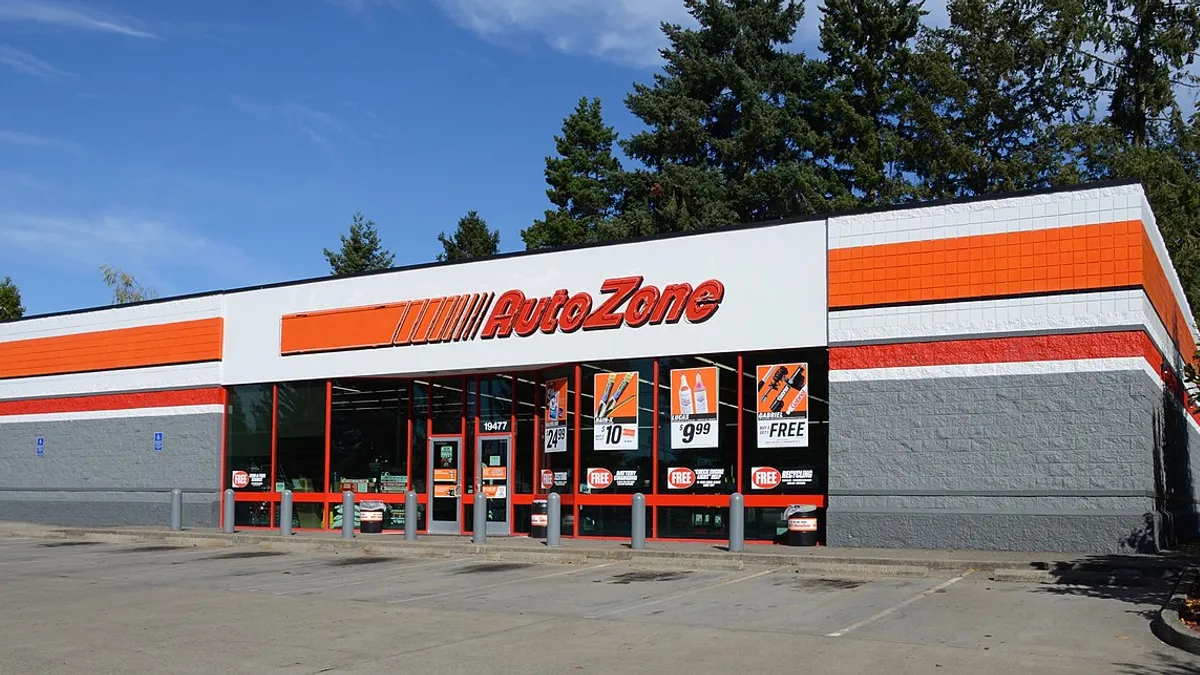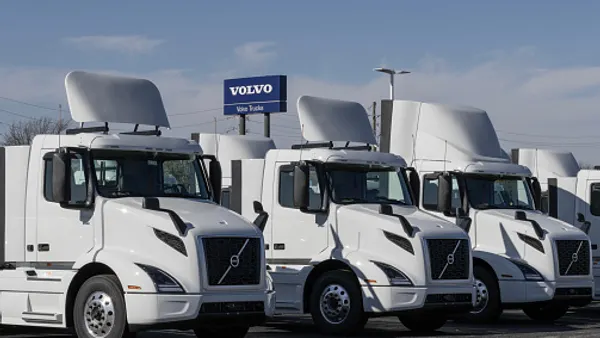Dive Brief:
- AutoZone will redefine supplier diversity within its procurement operation due to supply chain challenges caused by coronavirus-related disruptions, CEO William Rhodes said on a Tuesday earnings call.
- The retailer plans to take geographic diversity into account when assessing supplier risk in the future, Rhodes said. "Even if we had two or three or four vendors, all of those vendors were in China," he said. "We also need to think about country diversity and this situation COVID-19 only made that much more important."
- The company has already begun searching for new sourcing countries, but expanding the geographic diversity of AutoZone's supply chain will be a long game. "It would take a considerable amount of time, but it's one of those things, if you don't ever start it, then you'll never get there," Rhodes said, listing India, Mexico, South Korea, Turkey and Vietnam as possible targets.
Dive Insight:
Supplier disruptions affecting AutoZone last quarter (ending Feb. 15) subsided in Q3, according to the CEO. The company quickly set up sourcing contingencies, with manufacturing in much of China stalled early in the year, but it did not ultimately need them. Still, the experience, combined with a year of 25% tariff pressure on sourcing and pricing strategy, has caused the company to reconsider its supply chain.
"Unfortunately, the COVID story shifted to become more of a U.S. centric story and away from the supply chain disruptions," Rhodes said. "That said that portion of this pandemic and the tariffs have made us think differently about supplier diversity."
It's a sentiment shared by business leaders across sectors, according to an ongoing study from PwC. In a late-March survey of CFOs, mainly from U.S. Fortune 1,000 companies, 42% told the auditing firm their supply chains would likely broaden as a result of the coronavirus crisis.
Rhodes presented the mindset shift regarding supplier diversity as the culmination of two years of supply chain disruptions that are very different in origin, but similar in location. AutoZone is used to a fairly stable business on the supply and demand side, Rhodes said.
COVID-19 and the U.S.-China trade war — many AutoZone products are still tariffed at 25% — convinced the CEO that multi-sourcing within China does not offer enough risk mitigation going forward.
According to another, later survey by PwC in April, supply chains are not expected to leave China entirely despite inclinations toward geographic diversification. AutoZone will prioritize resourcing private label products first, according to Rhodes.














